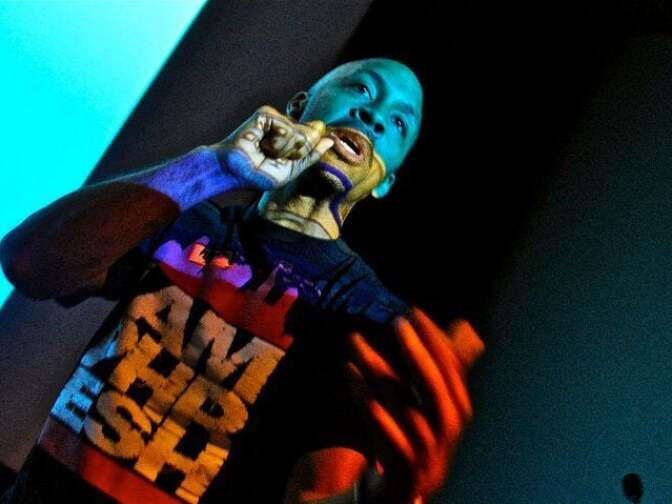With our free press under threat and federal funding for public media gone, your support matters more than ever. Help keep the LAist newsroom strong, become a monthly member or increase your support today.
Hip-hop studies conference drops a beat at UC Riverside
Hip-hop has been slowly edging its way into academia in recent decades.
Lots of colleges offer hip-hop dance courses. Some professors occasionally offer wildly popular courses on rap icons. Harvard has a big archive and research institute dedicated to the genre. And in 2012, the University of Arizona established a minor in hip-hop culture.
For hip-hop scholar Imani Kai Johnson, the field of study needs more.
"Universities have long been aware that courses on hip-hop can draw in a number of students," said Johnson, an assistant professor in the department of dance at the University of California, Riverside. "But that’s not the same thing as taking it seriously as a field of study."
To create that space for serious dialogue and scholarship, she founded the Show & Prove Hip Hop Studies Conference. UC Riverside will host the conference for the first time April 8-10. The three-day conference will include performances, film screenings, master classes from DJs and dancers, paper presentations and panel discussions exploring hip-hop and literacy, careers in arts activism and how hip-hop is used as a social justice tool abroad.
Johnson founded the conference in 2010 and it's been held twice before at New York University. Her research is focused on hip-hop dance, particularly b-boying or breakdancing, and she got the idea for the conference when she started teaching as a post-doctoral student at NYU.
"I was just noticing and thinking about the interesting work coming from my students and I wanted to create a platform for those folks who were doing research," she said. This isn't just for the presentation of finished research papers, a space where people can brainstorm, debate and collaborate.
The event is free and open to the public. Johnson says she expects a mix of students, scholars, artists, community members and welcomes people from outside of academia –"anybody who’s curious about what hip-hop studies means or can mean."
The subtitle of this year's conference is: The Tensions, Contradictions, And Possibilities Of Hip Hop Studies. Johnson says the tensions and contradictions come out of the "sometimes problematic nature of studying hip-hop culture within academic institutions."
Some question whether the study of hip-hop culture should be part of a formal college education. Others look at the university's historical distance from working class communities and communities of color, and question whether it should be a home for a culture born out of those communities. Johnson welcomes those debates and says those conversations have been a big part of past conferences.
"I don't think that anything substantive can come out of doing research on hip-hop unless one is also engaging questions of power and if you're not doing that, you're not doing the work fully," she said.
Artists and researchers will tackle that tension head-on in a panel discussion called "Artists in the Academy," where they'll tackle these questions: "Can the academy be a comfortable place for Hip Hop artists? Should it be?"
"It’s not just about making hip-hop culture adapt to an ivory tower culture," said Johnson. "[It's about] then interrogating what needs to change in the institution to make it conducive for thinking through hip-hop and making it a space where students can also do that work."









